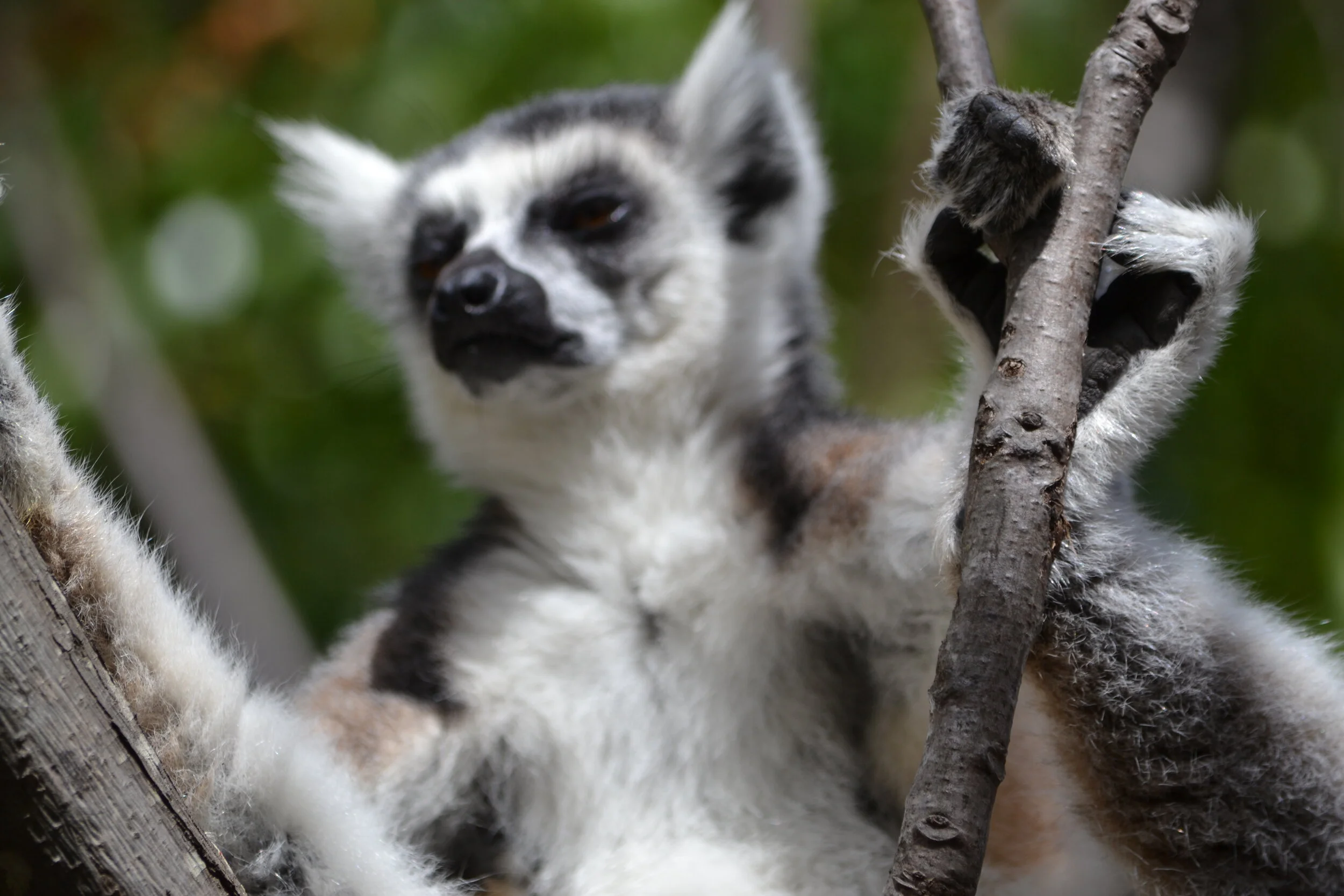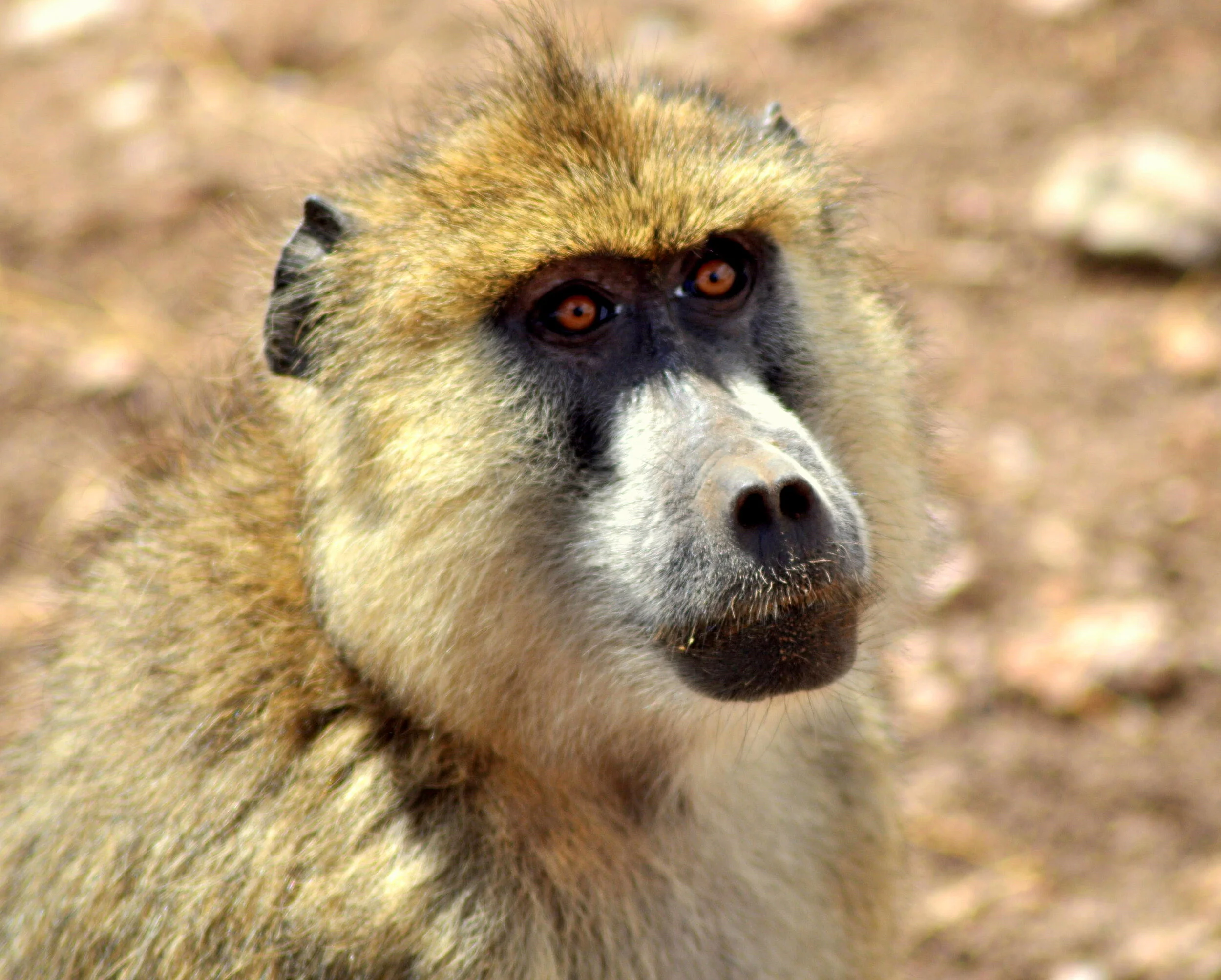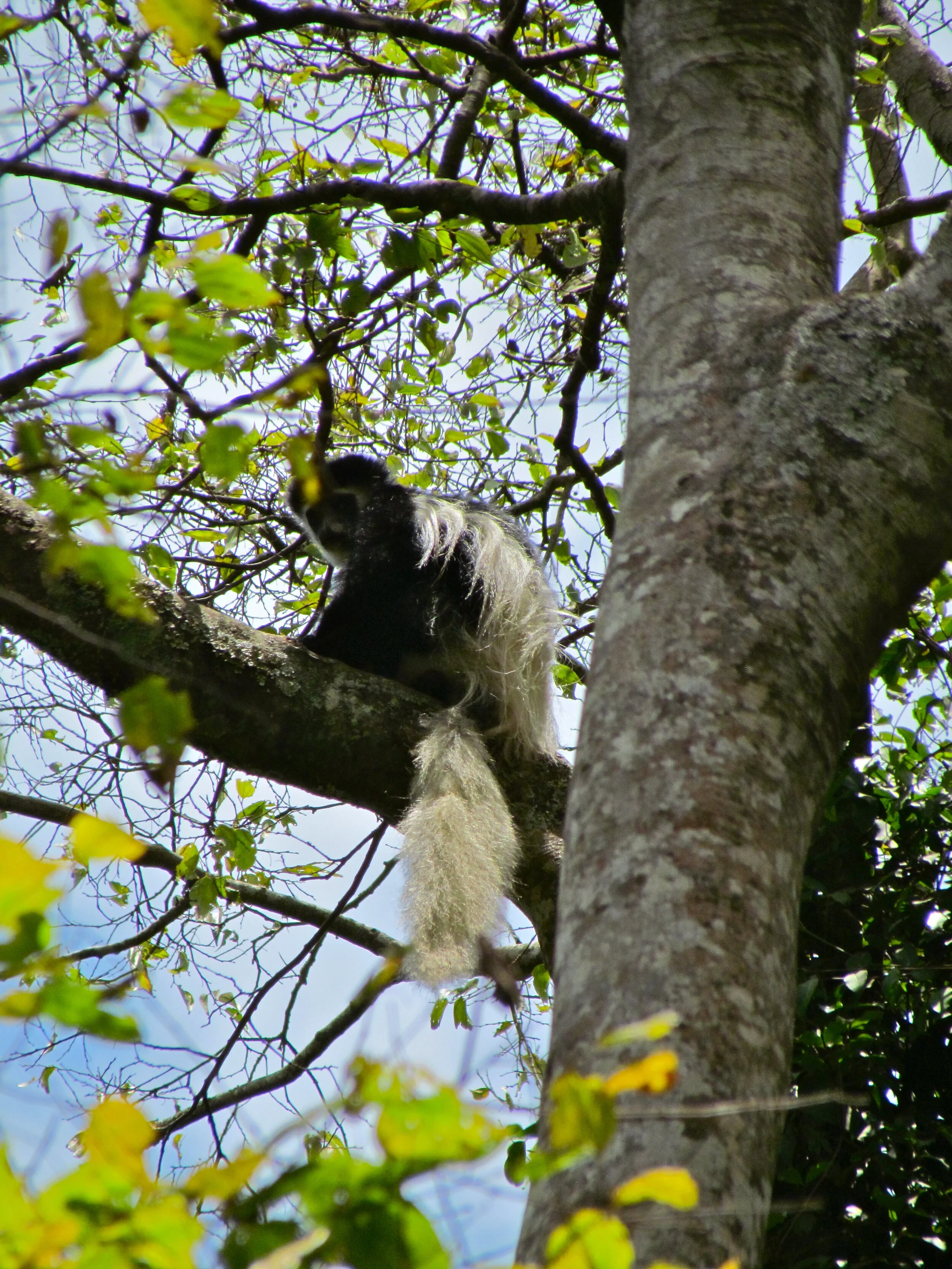Lemurs under lockdown?
By Kate Thompson, Safina Center Launchpad Fellow
Our lab’s meetings generally begin with cheerful (or frazzled) updates on student’s projects, their research plans, and data analyses. We talk about flight itineraries and field site equipment. Today, the faces staring back at me during our weekly Zoom meeting are defeated. For many reasons, conservation field research has ground to a halt in Madagascar. And perhaps the trickiest challenge, which we are talking our way through now, is that lemurs may be susceptible to COVID.
Ring-tailed lemur in Madagascar. Photo: Kate Thompson
A recent preprint has suggested that lemurs have the ACE2 protein receptor that SARS Co-V-2 binds to, making them theoretically at risk for contracting COVID-19. To date, no cases in lemur populations in the wild or captivity have been confirmed. But there’s history to justify these fears. Humans have shared many of our diseases with unwitting primate neighbors; tourists and researchers have transmitted respiratory viruses, such as bronchopneumonia, to gorillas and chimpanzees in the recent past. While wet markets are thought to have initiated COVID-19’s zoonotic disease transmission from wildlife to humans, this specter of anthropogenic disease transfer—from humans to animals—has cast a long shadow over my colleagues’ plans for research, both this semester and into the future.
Olive baboon, in Kenya. Photo: Kate Thompson
Black-and-white colobus monkey, in Kenya. Photo: Kate Thompson
The IUCN has an established set of guidelines for protecting wild study populations from such threats. And yet, that doesn’t lighten the ethical burden that weighs heavily on the shoulders of my lab mates. Given the known way similar viruses splash around the primate gene pool, should we who seek to protect these endangered populations risk even hypothetical harm? Is the benefit of the knowledge gained through new research enough to assuage that nagging doubt? Or does doing conservation mean protecting them at all costs—even from conservationists? This concern extends beyond research projects. Ecotourism is a lifeline to many impoverished communities in Madagascar. The industry funds conservation projects across the island nation. Without the steady flow of tourists, the money used to protect lemur populations dries up.
The longer COVID-19 is with us, the more dire this conundrum will become. In our day-to-day lives, many of us make sacrifices we’d rather not have to these days. We hold grandma’s birthday party over Zoom, even though she’s yet to see the grandkids. We host drive by college graduations and bridal showers when we’d rather not crack the champagne alone and have a group hug instead. We put on a mask, even if it’s stuffy and we’d rather not have to double back into the apartment every time we forget to grab it on the way to the corner store. We do it for ourselves yes, but perhaps—even more importantly—for those vulnerable among us. Is masking up as scientists enough? Now scientists are navigating the same concerns in the field: how many protections can we take, not for our own safety, but for the sake of the animals we work to protect?



